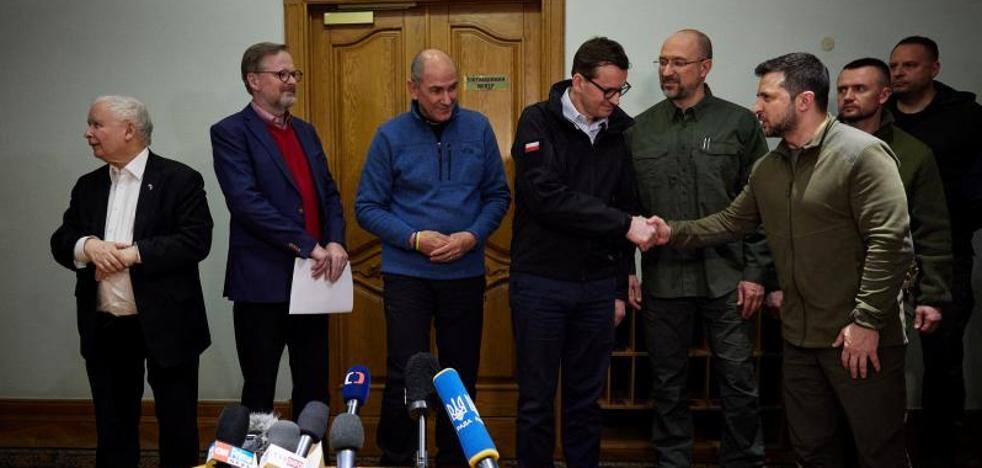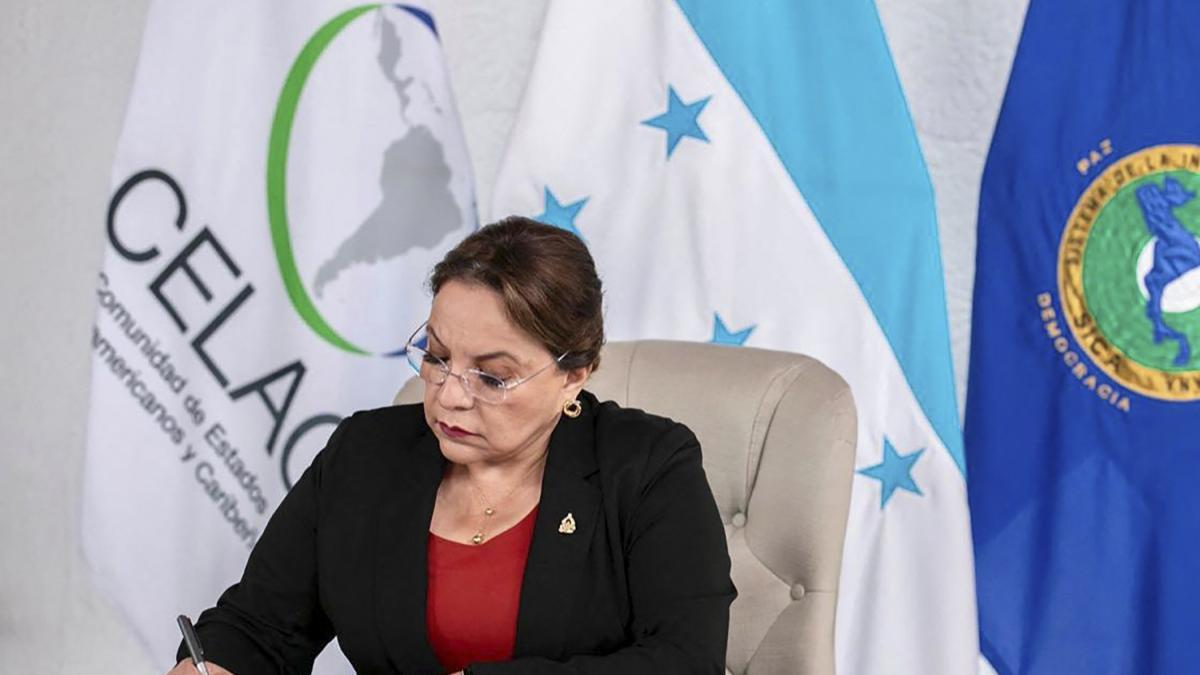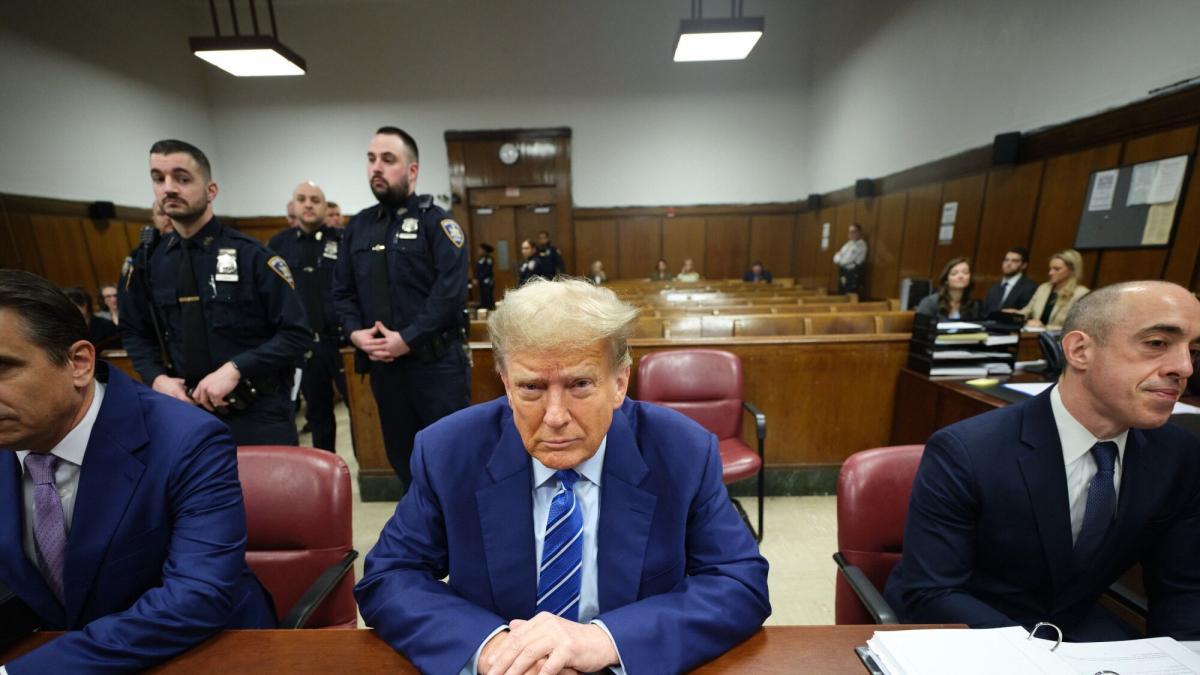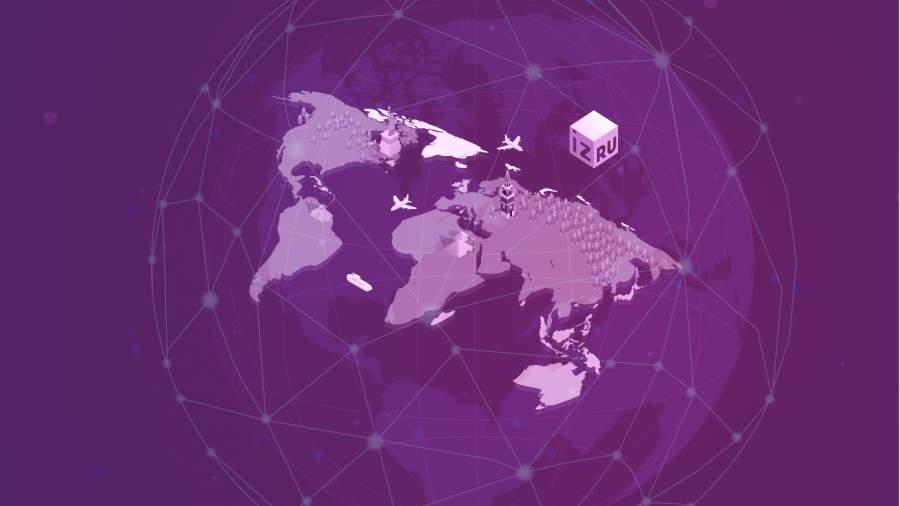Zelensky receives this Tuesday in kyiv the visit of the prime ministers of Poland, Slovenia and the Czech Republic. /
According to Polish sources, they were attending kyiv “on behalf of the de facto” of the EU and with the consensus of the president of the European Council, Charles Michel, and that of the European Commission (EC), Ursula von der Leyen.
Poland assumed the leadership of the European eastern flank with the risky train trip of its political leadership to a kyiv under bombs and the proposal, in the presence of President Volodymyr Zelensky, to send a NATO peacekeeping force to Ukraine. They were two displays of courage, both physically and politically, to which Brussels and Germany have responded by recalling the unfeasibility, at least, of an action that for the Atlantic Alliance may be even more dangerous than the purpose of Warsaw – already aborted– to donate their MiG-29s to kyiv.
It was Jaroslaw Kaczynski, Polish deputy prime minister and leader of the ultra-conservative Law and Justice (PiS) party, who turned the courageous mission headed by the head of his government, Mateusz Morawiecki, plus his Czech counterpart, Pietr Fiala, and the Slovenian, Janez Jansa. The images of the meeting with Zelensky, broadcast via Telegram by the kyiv government, were followed by an appearance aimed at expressing the solidarity and support of these Eastern European partners. Kaczynzki, twin brother of the late President Lech Kaczynski and representative of his political legacy, suggested there the idea of a NATO “peace troop”, something for which – he acknowledged – a “broad framework” would be needed, different from the existing in the Alliance.
It was an appearance after midnight in the Ukrainian capital, after a journey of more than twelve hours by train in a country bloodied by the Russian invasion that began twenty days ago. While Morawiecki supported Ukraine’s aspiration to a rapid process of recognition as a candidate to join the EU, the strong man of the PiS amplified with the mention of NATO the challenge that, in itself, that trip posed for Brussels.

According to Polish sources, they were attending kyiv “in de facto representation” of the EU and with the consensus of the president of the European Council, Charles Michel, and that of the European Commission (EC), Ursula von der Leyen. Brussels clarified that they were simply “aware” of a trip that, according to Michel, “involved security risks.”
That nuance from Brussels, issued on Tuesday while Morawiecki and his companions were still en route to kyiv, was followed on Tuesday by a clear rejection of Kaczynski’s proposal for a NATO peacekeeping troop. The United States, France and Germany agree that there can be no presence of Alliance soldiers in Ukraine, Foreign Minister Olaf Scholz recalled, through a spokesman. The secretary general of the Alliance, Jens Stoltenberg, has expressed almost daily his resounding no to any maneuver that implies “entering” Ukraine, including dictating a no-fly zone as kyiv demands.
“Dear citizens of Spain, France, Austria or Italy: “is your comfort more important than the tears and blood of Ukrainian children?” Morawiecki, back from Ukraine but presumably still under pressure, wrote on his Twitter account. the impact of what was experienced in that mission. With this he intended to call on European partners to get off the couch or commit to something other than arms supplies.
The outlook in Warsaw is very different from the display of timidity and half-hearted compromise shown at the informal Versailles summit a week ago. The pronouncement of the Netherlands against any “shortcut” for Ukraine’s entry into the EU was not the position of a single partner, but the majority among the 27. The Versailles images of the summit of the 27 were followed by those of Morawiecki and Kaczynski traveling by train, on the same route that thousands of Ukrainians take every day to leave their country.
Poland, with the largest border with Ukraine among the EU partners, is also the country that has received the most refugees since the beginning of the invasion -1.8 million, of the three million displaced by this conflict-. A million citizens of Ukrainian origin already lived in its territory, which marks it as a country predestined to welcome them.
While in Germany, where some 150,000 refugees have arrived, cries are beginning to be heard from regional authorities who say they are “overwhelmed” to accommodate them, Poland has become a host country apparently generously shared by institutions, local or national powers, as well as citizens. of all conditions.
Nothing to do with the rejection of refugees that characterized that country during the 2015 migration crisis nor, more recently, with the actions of its authorities in the face of the so-called “hybrid war” launched from Belarus, by driving thousands of refugees Syrians and other regions in conflict over its borders. Poland then blocked any possibility of entering the country for tens of thousands of those displaced, trapped in no man’s land and freezing night temperatures.
#Poland #assumes #leadership #eastern #flank #courage #feasibility



/cloudfront-eu-central-1.images.arcpublishing.com/prisa/C7IXLMBYKXJRUPWRRCTCW4VXFI.jpg)

/cloudfront-eu-central-1.images.arcpublishing.com/prisa/QNXDX2FJ2ZBOXIZ7FK5CJY2YQU.jpg)



